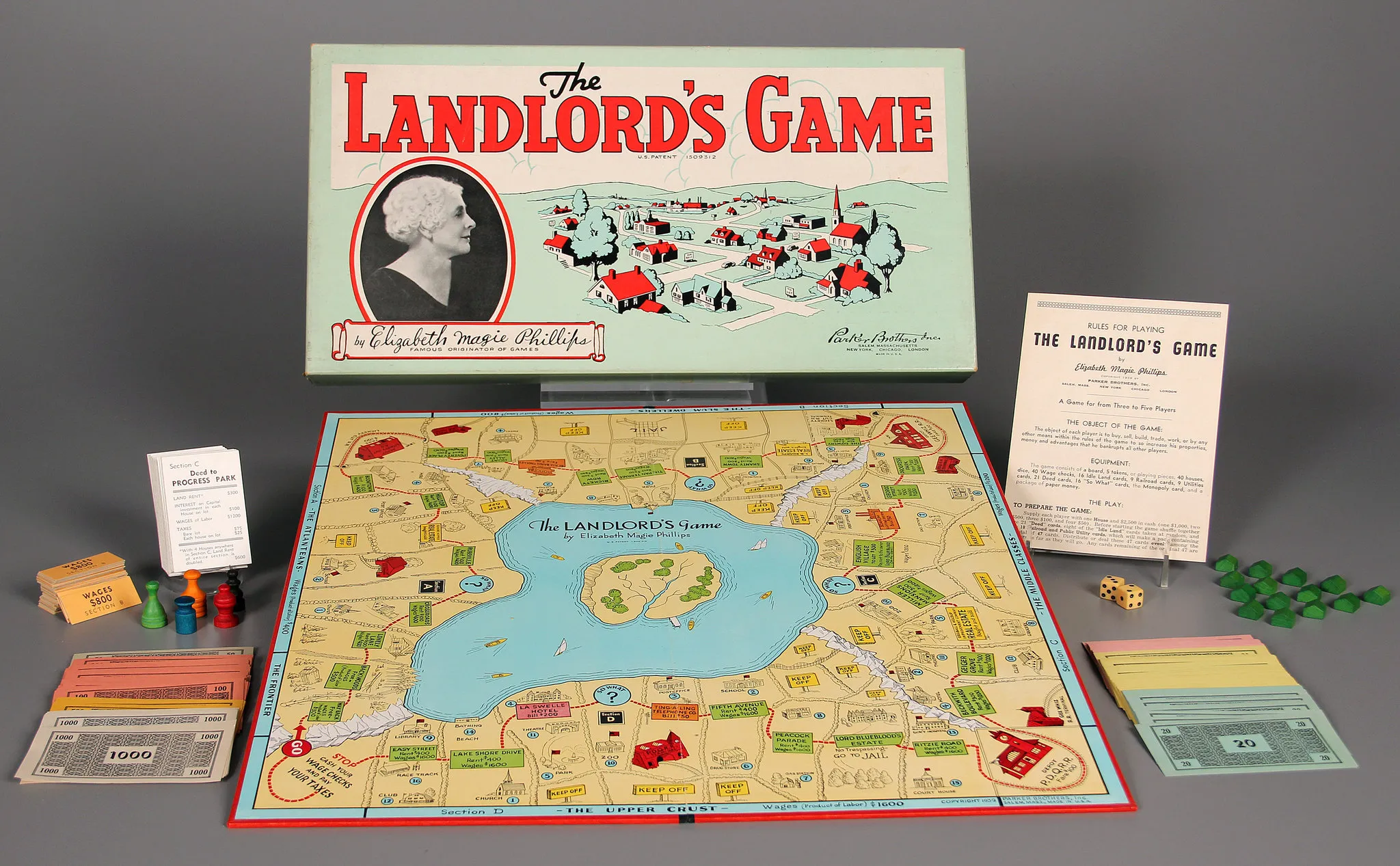Without a Woman: Lizzie Magie Game-ified Landlord Greed
- iWomanTV

- 2 days ago
- 2 min read
Before Charles Darrow - the man Monopoly tried to pass as the creator - ever laid eyes on the game we now call Monopoly, there was a woman named Lizzie Magie — an inventor, a writer, a feminist, and a bold thinker. Born in 1866 in Macomb, Illinois, Lizzie grew up in a household influenced by progressive ideals. Her beliefs in fairness and balance would shape her life and work.
As an adult, she grew frustrated by how few people were exposed to her and her family's economic ideals. Looking for a new medium to spread these principles, she landed on a powerful concept: a board game. In 1903, Lizzie created “The Landlord’s Game,” and patented it in early 1904. It was a game of property trading, with spaces that closely resembled those of today’s Monopoly. Players earned wages as they moved around a looped board, buying properties, paying rent, even going to jail. She designed two sets of rules: one that mimicked monopolistic practices, rewarding the ruthless, and another, more utopian version where wealth creation benefited all. Her aim was to demonstrate the contrast between greed and cooperation, and to show players that the more equitable model was the better one — in-game and in real life.
Lizzie's game never became a mainstream success, but it was embraced by professors and economists, and used as an educational tool. Over time, homemade versions began to circulate, especially among Quakers and college students. These copies evolved — locations changed to local streets, house rules were added, and crucially, the name “Monopoly” began to stick.
In 1932, Charles Darrow was introduced to one of these homemade versions during a game night with friends. Enthralled, he asked for a copy, complete with written rules. Not long after, Darrow began selling the game — claiming it as his own invention. He redesigned the board with help from a friend and cartoonist, who contributed the artwork that has since become iconic. Darrow pitched it to Parker Brothers, and by 1935, Monopoly was a roaring commercial success. It sold hundreds of thousands of copies in its first years alone.

When Parker Brothers realized there might be a pre-existing patent that could challenge their rights, they tracked down Lizzie Magie. She was 70 years old when George Parker himself visited her in 1935. They offered her $500 for her patent — no royalties, no credit, just a flat fee. Lizzie accepted, hopeful that her game would finally reach a wider audience.
But instead, her version and the two other games she developed were quietly published and allowed to fade. Meanwhile, Monopoly — now credited entirely to Darrow — exploded across the globe. Lizzie Magie was left to watch her life’s work become a cultural icon, her name and purpose erased.
Today, Lizzie Magie’s legacy is finally being acknowledged. She’s remembered not just as the true inventor of Monopoly, but as a woman ahead of her time — a thinker who used invention not for fortune or fame, but as a tool for social change.






Bình luận